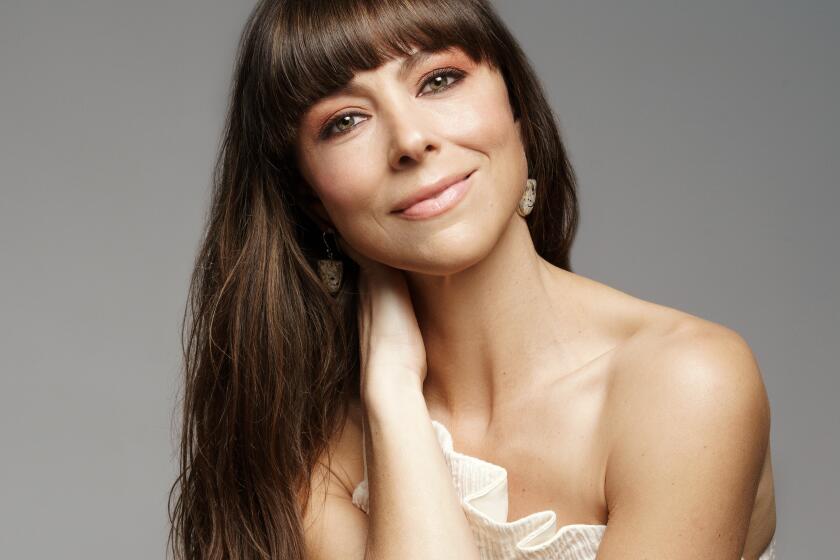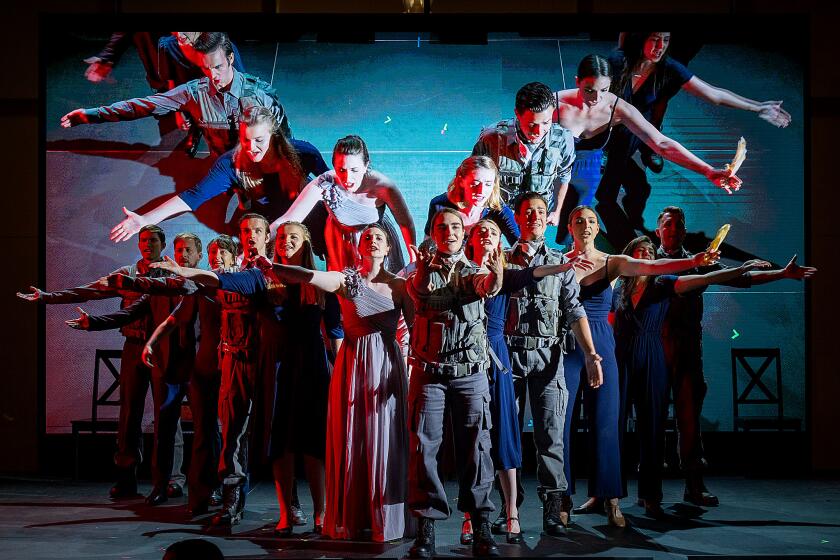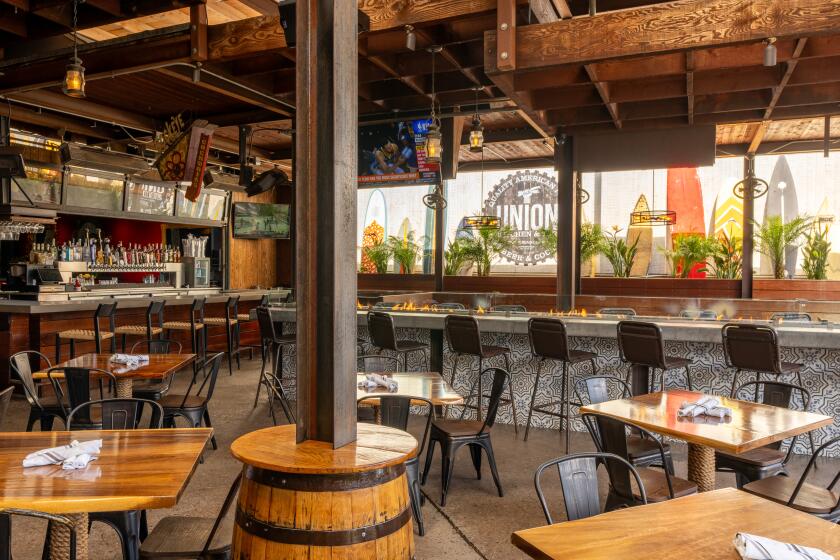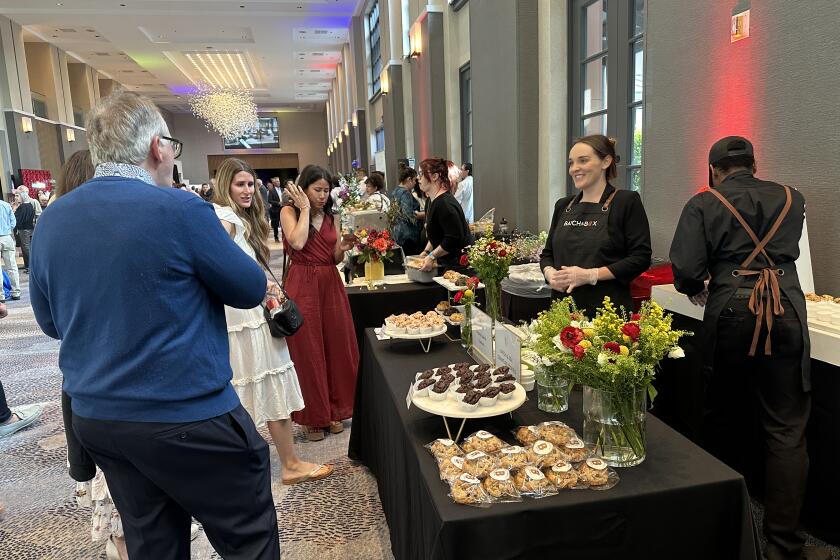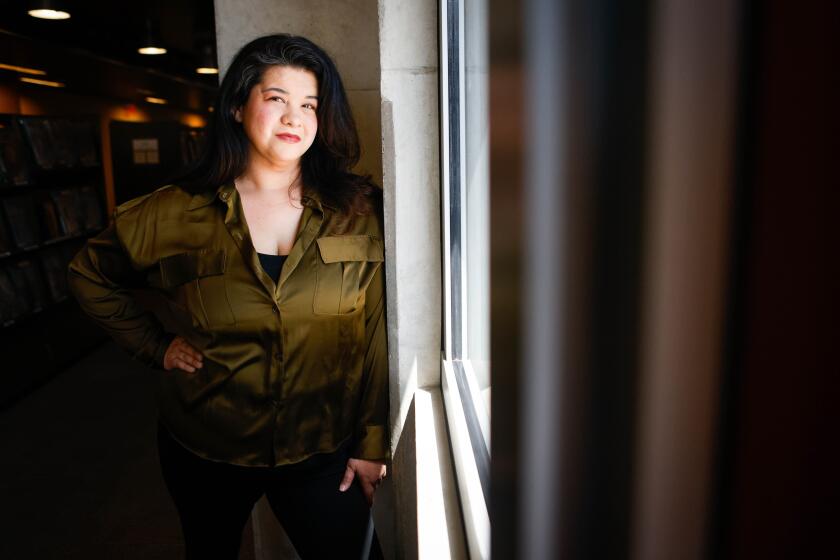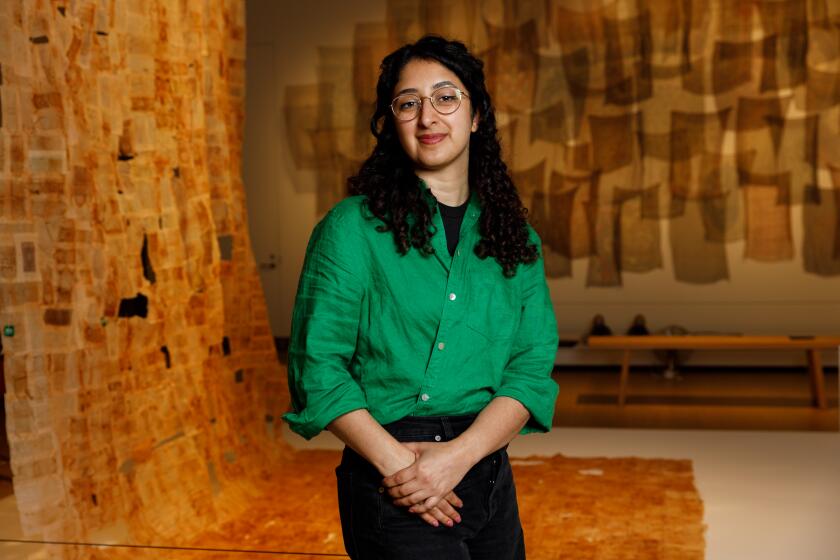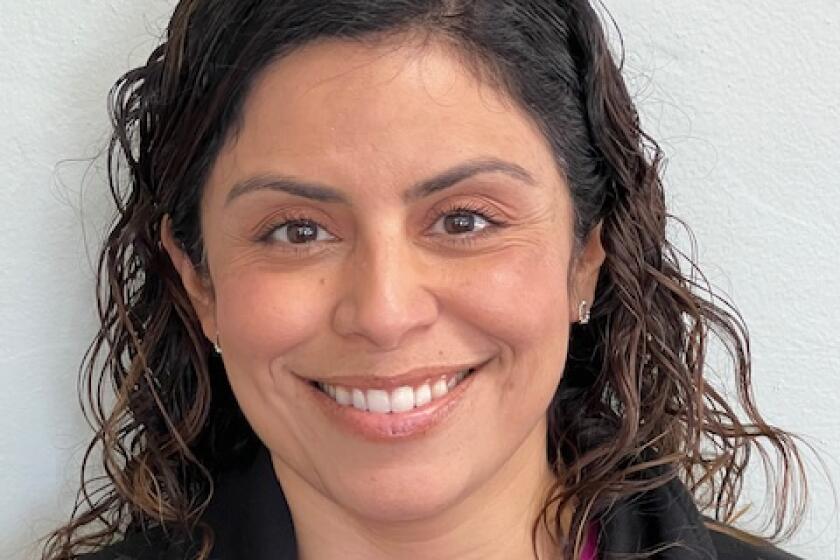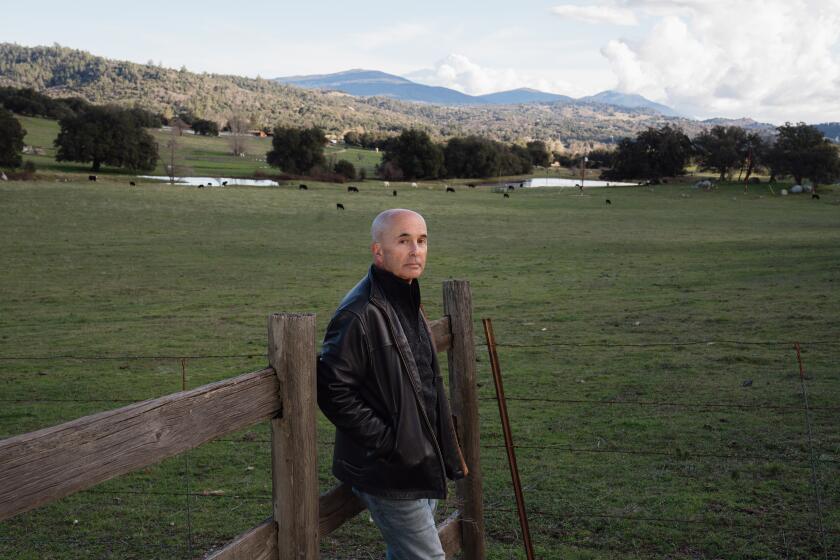Apples may be few, but Apple Days are on
The Apple Days Festival, Julian’s annual two-day celebration of its native fruit, gets under way Saturday with fresh-baked pies, gold-panning, pony rides and an antique tractor display. But one item that will be about as scarce as a hen’s tooth is the celebrated fruit itself.
Extreme weather conditions have withered the mountain hamlet’s apple crop, and all but a couple of its 13 “U-Pick” orchards have already closed for the season. Festival goers can still buy boxes of Julian-grown apples along Main Street this weekend, but some local farmers are calling this year’s harvest one of the worst in history.
In a good year, Julian native Woody Barnes said his apple trees will produce 20 to 40 large bins of fruit. This year’s bounty was zero, among the worst crops since his family started growing apples on the mountain in the late 1800s.
“We didn’t even have enough apples to eat this year,” said Barnes, 79.
Barnes said a “perfect storm of complications” hurt most of the Julian orchards that lack irrigation. Among the weather-related woes were the ongoing drought, a warm winter (which kept the trees from getting the chill hours they needed), a frost and hot spell that killed many apple blossoms, and out-of-season Santa Ana winds that blew baby fruit off the branches last spring.
But Barnes said he isn’t daunted by his paltry pickings.
“The farmer’s motto is wait until next year,” he said. “We had quite a bit of fruit last year and it tends to alternate every other year — a lot and then less.”
Of course, apples or no apples, Julian merchants are expecting a bumper crop of visitors for the Julian Apple Days Festival, which runs from 10 a.m. to 5 p.m. Saturday and Sunday, Oct. 4 and 5, along Main Street. Tickets are $5 for adults and free for children 12 and under.
“We usually get about 5,000 people each year,” said organizer Tracy Turner. “In spite of the small crop, people are still coming up, but a lot are calling ahead to make sure we still have apples.”
Encinitas resident Tiffany Fox said she has enjoyed taking her children, ages 2 and 5, to Julian for apple-picking, but because most of the U-Pick farms are closed, she and her kids will instead focus their energies on eating apple pie and cider doughnuts when they visit on Sunday.
“It’s a blast,” said Fox, a science writer at UCSD. “It’s like good old-fashioned fun.”
Liz Smothers, owner of the Julian Pie Co., said she’ll sell from 1,000 to 2,000 pies at her Julian and Santa Ysabel stores this weekend, and she doesn’t expect demand to let up until January.
“It’s like clockwork. We turn on the ovens the first week of October every year and don’t turn them off again until the first of the year,” she said.
Smothers blends whatever Julian apples she can find with Granny Smiths to create her top-selling Dutch apple and other varieties of pie. She said that on a busy October weekend, lines of customers will snake down the sidewalks and the pies will sell out by late afternoon.
At nearby Mom’s Pies Etc., a store employee said they expect to sell about 800 pies this weekend, particularly their top-selling apple crumb.
Town historian and apple farmer David Lewis said Julian has been nationally known for its apples since 1907, when the local fruit won the apple industry’s top prize, the Wilder Medal. The village’s 4,200-foot elevation is just cool enough for apple trees and Julian’s fruit is renowned for its sweetness, tree-ripened freshness and suitability for cider.
Lewis said that in 1896 there were 650 acres of apple trees in Julian. The industry thrived until the 1970s, when a decline in home-canning (spurred by the availability of new varieties year-round) caused a drop-off in sales. Barnes said Julian growers looked for new ways to commercialize their fruit, so many of them opened farm stands, offered a “U-Pick” option or turned their fruit into pies and cider. Today there are just 286 apple-growing acres left in the county, according to the San Diego County Farm Bureau’s 2010 crop report.
Lewis, the president of the Julian Pioneer Museum, grew up on an apple orchard where two of the trees date back to 1895. He moved back to the 18-acre property three years ago. He said his crops have been small and it’s difficult to pick fruit from the overgrown trees, but he loves carrying on a tradition his grandparents began in 1955.
“I’m a historian, not an apple farmer, so it’s just a hobby,” he said. “But because of my interest in Julian’s history, it’s important to me to keep this land as an orchard.”
Get Essential San Diego, weekday mornings
Get top headlines from the Union-Tribune in your inbox weekday mornings, including top news, local, sports, business, entertainment and opinion.
You may occasionally receive promotional content from the San Diego Union-Tribune.


